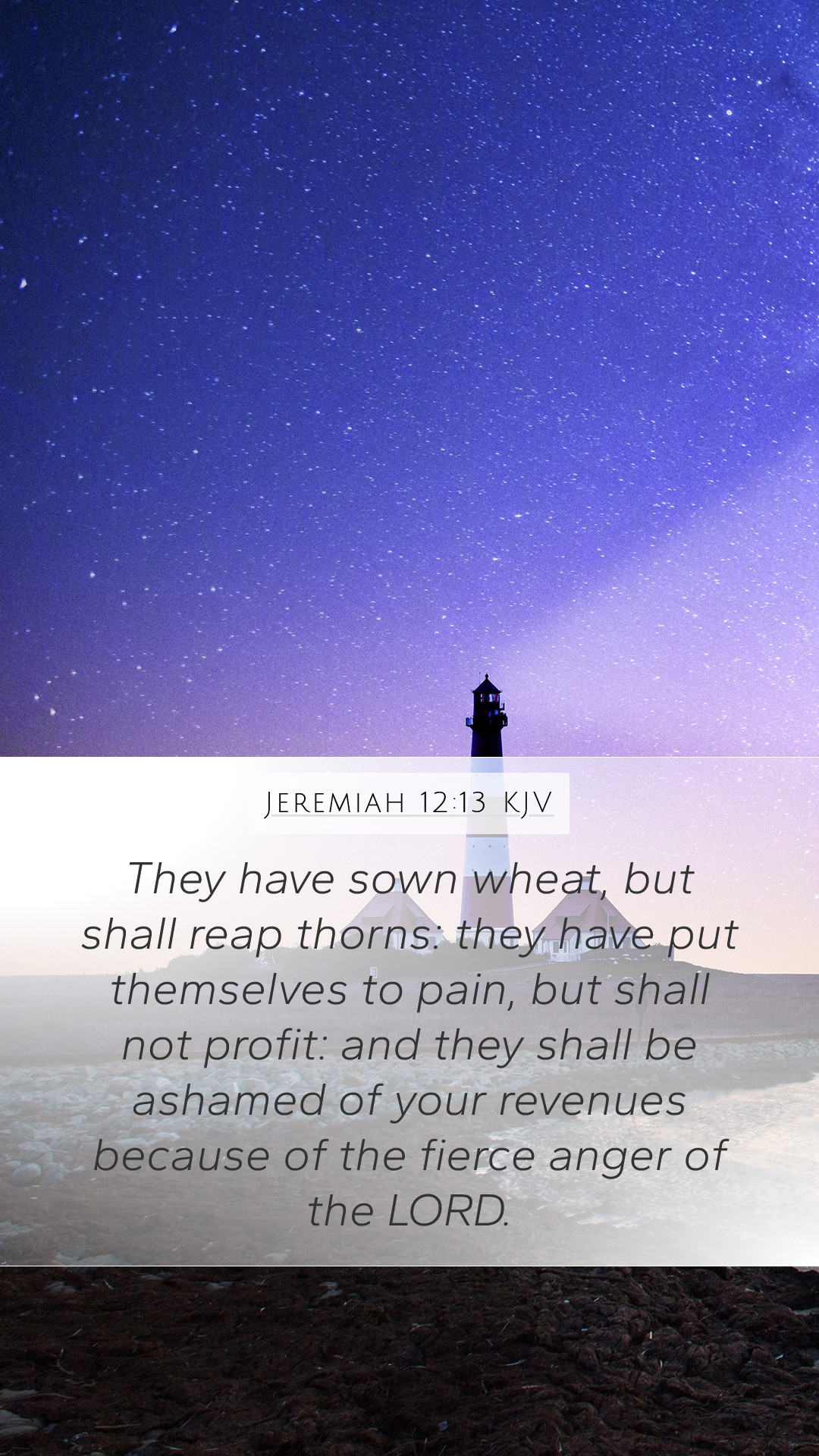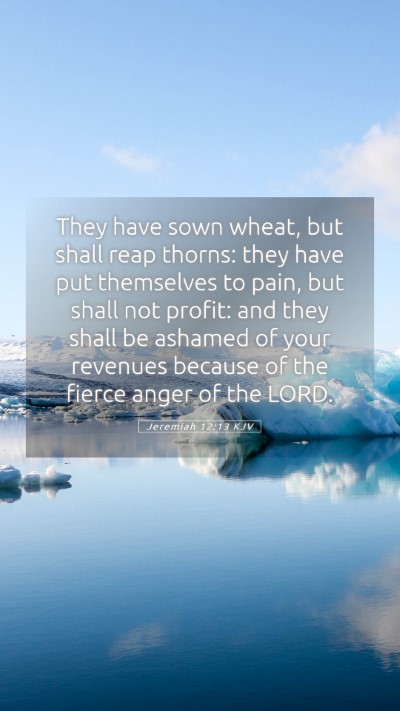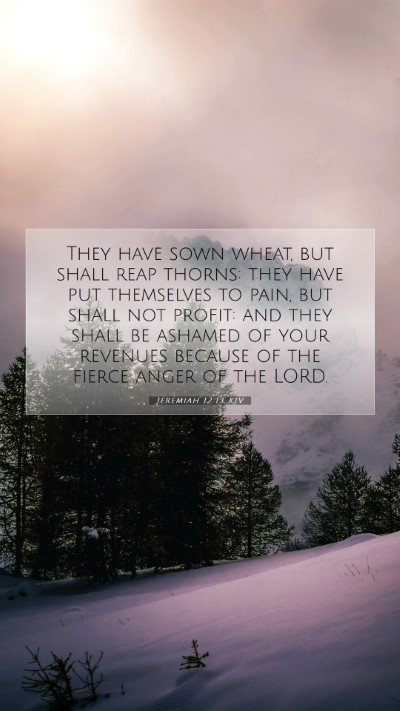Understanding Jeremiah 12:13
In the book of Jeremiah, chapter 12, verse 13, we find profound elements that articulate the struggles of the faithful and their perceptions of divine justice. This verse reads:
"They have sown wheat, but reaped thorns; they have put themselves to pain, but they shall not profit: and they shall be ashamed of their harvest because of the fierce anger of the LORD."
Verse Meaning and Analysis
This verse reflects a larger biblical theme: the juxtaposition between human effort and divine sovereignty. The imagery of sowing and reaping is a recurrent motif in Scripture, symbolizing the natural consequences of one’s actions.
Insights from Public Domain Commentaries
- Matthew Henry: Henry notes that this verse signifies the disappointment faced by the people of Judah. Despite their hard work in sowing a favorable crop, they are met with barren results, symbolized by “thorns.” This serves as a metaphorical representation of God’s judgment against them due to their unfaithfulness and sin.
- Albert Barnes: Barnes highlights the present distress of the people, connecting it to the anger of God. He emphasizes that despite their labor, which should yield good, they encounter failure, showcasing a divine principles at work. The passage ultimately questions the prosperity of the wicked versus the righteousness of those who suffer.
- Adam Clarke: Clarke interprets "thorns" as a consequence of their iniquity, implying a reversal of blessings due to their disobedience to God’s law. He elaborates that this disappointment is part of a larger narrative of loss and a call to repentance among the people.
Thematic Elements
Jeremiah 12:13 encapsulates the core themes of devastation and divine retribution. It serves as an admonition that despite appearances, God's justice prevails:
- Human Effort vs. Divine Will: The verse highlights that human efforts can be futile when they are not aligned with God’s will.
- The Consequences of Sin: The ‘thorns’ symbolize the spiritual and physical consequences of their actions.
- God's Anger: The reference to the “fierce anger of the LORD” underscores the seriousness of God’s response to sin.
Practical Applications
For those engaging in Bible study or looking for insights into the nature of God and human affliction, Jeremiah 12:13 serves as a foundational verse. Here are ways it can be applied:
- Consider the outcomes of your decisions and actions, ensuring they align with biblical teachings.
- Reflect on times you may have faced disappointment despite hard work, using it as a moment of spiritual introspection.
- Engage in discussions within Bible study groups about the relationship between faithfulness and divine reactivity.
Cross References
This verse can be understood more deeply when considered alongside other biblical passages:
- Galatians 6:7: "Do not be deceived: God cannot be mocked. A man reaps what he sows."
- Proverbs 22:8: "He who sows wickedness reaps trouble, and the rod of his fury will be destroyed."
- Isaiah 5:10: "A ten-acre vineyard will produce only a bath of wine; a home-eighth of a seed will yield only a bushel."
Conclusion
Jeremiah 12:13 serves as a vivid reminder of the spiritual realities that govern the world. It calls believers to examine their hearts and motivations, urging a commitment to faithfulness in spite of the challenges faced. Understanding such verses leads to deeper Bible verse meanings, enriches our Bible study insights, and enhances biblical exegesis.
Further Study
For those interested in a comprehensive understanding of Scripture, consider utilizing various Bible study tools and resources to explore the context and applications of this verse.


